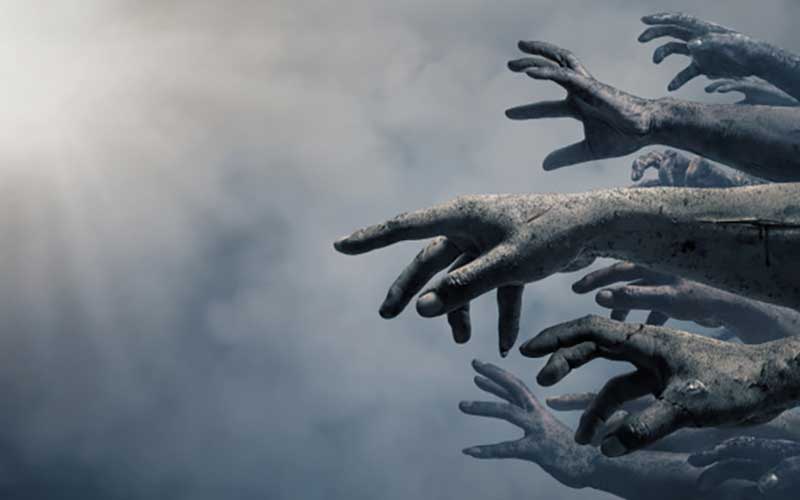Something that makes everyone unique is their ancestry. People have been fascinated with where they come from and the ones that made them who they are for years.
It is completely natural to wonder about how you came to be.
Especially with DNA testing becoming more widely available in recent years, it’s now easier than ever to discover exactly what we inherit from our ancestors.
From mutual physical traits to a similar sense of humor, the depths of genealogy are deeper than simply sharing DNA.
How Do Our Ancestors Influence Us: Let Us Count The Ways
Although there are countless things that our ancestors have passed down to us, here is a list detailing eight ways our ancestors influence us beyond pure science.
Contents
- How Do Our Ancestors Influence Us: Let Us Count The Ways
- 1. Ancestors Tell Us Our History
- 2. We Learn More About Ourselves
- 3. Ancestors Help Us Overcome Problems
- 4. Ancestry Helps Us Relate to the Content We Consume
- 5. Learning About Ancestors Elevates Educational Experience
- 6. Ancestry Explains the Unexplainable
- 7. It’s Easier to Take Preventative Measures
- 8. Ancestry Makes it Possible to Break Cycles
- What Do We Inherit from Our Ancestors?
1. Ancestors Tell Us Our History

The advancements made in the world of ancestry make it easy to learn about when, where, and how our ancestors lived.
You may be wondering what purpose all this information from the past for the people living in the here and now.
Well, think about it this way: Picture a quilt with varying squares of cloth, all different sizes and patterns. Somehow, these different pieces of fabric were able to be stitched together and made into one cohesive piece.
That is the beauty of ancestry. It allows us to learn about how we came to exist.
It reminds us that the world is bigger than us and that there is both a prologue and an epilogue to the story of our lives.
2. We Learn More About Ourselves
The fast-paced environment in which our society moves makes it hard to grasp our identities sometimes. This can make us feel lost and aimless.
Learning about our ancestors lets us fill in these gaps and take steps forward in the journey of self-discovery.
At times, our personal identities can feel like the only aspect of our lives that we have control over.
What factors of the past are currently defining our present? Why are we the way that we are?
These existential questions can be answered by researching our genealogy and make sense of the puzzle pieces that make up our existence.
3. Ancestors Help Us Overcome Problems

The 21st century presents completely different problems than what our ancestors had to deal with in the generations before us.
Learning about our ancestry helps us realize that if the people who made us who we are were able to get through events like war and famine, then we can overcome anything life decides to throw at us.
In addition, having this knowledge of your ancestry also allows you to gain a better sense of self that people who are unaware of their background do not have.
A study published in the European Journal of Social Psychology showed that students who had thought about their ancestral origins had higher intelligence levels than those who had never thought about their ancestry before.
4. Ancestry Helps Us Relate to the Content We Consume

Every book we read, every song we listen to, and every movie we watch is saturated in culture.
Obviously, the audience can relate to the personalities and struggles of characters in literature and film.
However, knowing about our own cultures opens opportunities for deeper connections to the fictional realities we are exposed to daily.
This doesn’t need to be limited to ethnic ancestry, either.
It can be applied to cultural norms and mental illnesses that are passed down through the generations.
The damsel in distress can transform into a girl who wants to escape the patriarchal restraints society has placed on her.
Goldilocks can become a person struggling with OCD instead of a picky eater. As these characters increase in depth, so does our ability to relate to them.
5. Learning About Ancestors Elevates Educational Experience

A big part of why students find school boring is because they can’t relate to the material being taught.
Those glazed-over expressions while scanning a classroom is a teacher’s worst nightmare.
Bringing ancestry into the curriculum is a great way to keep young minds engaged in the subjects they’re learning.
Where did their families come from? What hardships did their great-grandparents endure to create a life here?
For example, a student who learned about her Jewish ancestry connected more with the book they were reading in class about the Holocaust.
Realizing that these historical tragedies occurred much more recently than initially believed allows students to reflect on their own experiences.
This new inner insight that they obtain bridges the gap separating them from the subject.
6. Ancestry Explains the Unexplainable
The debate between nature versus nurture has been continuously rattling the brains of the scientific community.
What has more of an effect on us? The qualities that are embedded in our DNA or the environment that we were raised in?
The easy answer is that it is a mix of both that makes an individual who they are.
On the other hand, certain coincidences don’t have any reasonable explanation unless ancestry is at the center of the discussion.
In the documentary, Three Identical Strangers, triplet brothers were separated at birth and raised by three different families.
Even though they grew up separately and didn’t even know about each other’s existence until young adulthood, they shared several similarities.
These ranged from things about their behavior, speech, habits, and struggles in mental health.
This experiment, although ethically questionable, proves how powerful the traits we inherit from our ancestors can be.
7. It’s Easier to Take Preventative Measures
Even though taking ancestral DNA tests is useful to find out what ethnicities make up your background, they are also helpful to find out which physical ailments may affect you in the future.
This may seem a little scary, but it is extremely important to know what diseases run in your family to take the proper steps to prevent or slow down its progression.
This is why healthcare providers ask for your medical history at appointments. Certain conditions and illnesses can’t be tested for unless the doctor is made aware that it runs in the family.
This also applies to mental illnesses such as depression, anxiety, and schizophrenia. Someone’s likeliness for addiction can be inherited as well.
This is why those who have parents who are avid smokers are advised to avoid nicotine because they are more likely to become smokers themselves.
8. Ancestry Makes it Possible to Break Cycles
Eye color, music taste, and food intolerances are not the only things our ancestors can pass down to us. Another thing that is passed down to generations is trauma.
This type of trauma is different from other types because it does not have to be directly experienced.
A pair of grandparents could have experienced a traumatic event that affected the way they parented their children, and then those children would go on to have children that they raise with the remnants of that past trauma.
An example of this would be if a family lost their home in a fire and then consequently became more anxious and cautious with their possessions.
This would teach their children to fear for their stability because everything could be lost at any moment.
Thankfully, there is a light at the end of this tunnel. More research is being conducted in the field of generational trauma.
With this new information, further trauma can be prevented, and the newer generations can successfully escape the cycle of trauma they were born into.
Becoming aware of the painful things their ancestors went through can build up their resilience instead of breaking them down further.
What Do We Inherit from Our Ancestors?
We can learn so much from the lives our ancestors lived before us. We can inherit the similarities we see when we look at our reflections.
We can inherit their passion for the arts or their affinity for nature. There are so many parts of them that make us up as wholes.
Our ancestors give us more depth to gradually discover within ourselves in the present. The existence of our ancestors makes it easier to comprehend the how and why of our modern realities.
Over anything else, we inherit a steady footing in this ever-changing world thanks to our ancestors.
So, make sure to thank them for the sense they provide you in the age of nonsensicality!

